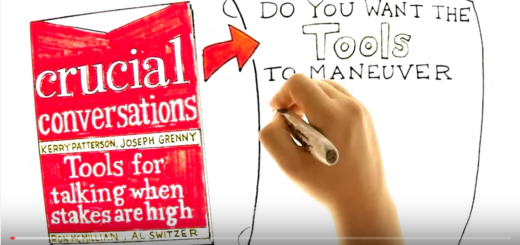New Year – New Challenge
So it’s a New Year and time for a New Challenge, right? As I have been doing the last 6 months or so, I plan on tackling a new challenge and sharing my journey here on the blog. This month’s challenge is to construct an online unit. I’m going to take the work I did with Fink’s thoughts on creating significant learning environments along with my exploration of Wiggin’s designing for understanding, and create a online unit for the entrepreneurism class we have proposed. The particular topic I am going to explore is the marketing aspect. Remember this class is intended to be taught to 9th and 10th graders as an introduction to the entrepreneurial track we are hoping to implement.
Online Platform
I have worked with several learning management systems (LMS) in the past. My current favorite is the one we use at Oakridge through Finalsite. I love the calendaring features, the ease of uploading resources, the visual simplicity along with its integration with our student management system. I have also use Hapara Workspaces which has great integration with G-Suite and nice grouping features. I have created a course in iTunes U which has obviously great integration with Apple products and truly streamlines workflow between teacher and learner. I even used Edline back in the day.
Seeing as this is a new challenge I wanted to play with a new LMS. I chose Schoology because it contains a lot of the features I wanted and you can use it for free. Schoology allows you to embed videos, add links, create pages and folders. I think this will be useful as I create my classes. I also like the ability to add badges since I am leaning towards going Mission Impossible style with my Marketing unit. Finally I love the ability to open up different challenges based on student completion. I think this will come in handy of I chose to gamify any portion of the units.
Expertise
As you may recall we hope to use actual entrepreneurs from our school community to help teach the course in the fall. Creating this sample class will also help in helping these mentors understand the process of putting together their units. While I have a degree in Economics with a Foundation of Business minor, all my knowledge is theoretical. Bringing in these experts will allow for an authentic experience for our students that cannot be replicated without their help.
Learning Theories
I outlined my beliefs in authentic experiences through an active learning environment in my learning theories post. I hope to find a way to maintain my Constructivist views while creating the scaffolding necessary to make all my learners successful in an online course. I know this will be a new challenge but one I am looking forward to this month.
Effectiveness of Blended Learning
I know I come in with a bias towards blended learning and ePortfolios because of my experience with my Economics class last year. We need to leverage the power of the internet and their individual digital footprints. Chatham-Carpenter, Seawel, & Raschig noted “ePortfolios not only provide an avenue for authentic reflection, they also provide students with a means of demonstrating their skill set, education, and relevant experiences” (2009). Students will use the ePortfolios to develop as “self-authors” connecting their businesses and course knowledge while engaging in an on-going self-reflection and peer review processes (Fitch et. al 2008). This type of portfolio-based learning occupies the highest form of knowledge and skill integration (Anderson, Krathwohl, & Bloom, 2001). Students will demonstrate the development of their professional skills while creating their emerging professional identities (Fitch et. al 2008).
While there is obviously plenty of evidence that says reflection and blended learning are effective teaching methods, I always fall back to the reactions of my students at the end of last semester. Here are just a few:
“I had a great time learning in your class this semester. I really enjoyed the flipped/extra study halls/online class. It gave me freedom to do my own learning and pursue aspects of economics that I was interested in (minus those pesky blog posts). I can’t wait to pursue finance and econ in college next year and you’re definitely a big reason that I decided to go this route.”
“I really didn’t know what to expect going into economics (although I will admit I suspected I would hate it because it would be the closest thing I had to a math class my senior year) but I actually really enjoyed the course. The class was interesting and our class discussions were always engaging, and I think we had a perfect balance of actually learning but also having plenty of time to joke around go on tangents. This class was definitely the highlight of my year 🙂 I really enjoyed writing blogs and I thought it really helped me understand the material (even if I really didn’t always feel like writing them.)”
“All I have to say is thank you. I have said it so many times to so many people, and I do mean it when I say it, that choosing to take your class was actually one of the best educational decisions of my life. Granted, it only lasted a semester, I’ve never had so much fun and excitement to learn in a class then I have in a long while. I think one of the great things about the way you teach economics is how you don’t make it based off of a textbook and revolve around memorizing everything. Learning when things apply, how they apply, and where they apply made me way more interested in the topics, because I actually understand why the fed or the government passes certain bills or laws and how everything applies to me. The blogs really made me get involved in trying to apply economics to all of my own interests, so it all became very personal. I like the balance you had between the online work and the in class discussions.”
I think that about sums it up. I hope you continue with me on this journey.
References
Anderson, L. W., Krathwohl, D. R., & Bloom, B. S. (2001). A taxonomy for learning, teaching, and assessing: A revision of Bloom’s taxonomy of educational objectives. New York: Longman.
Chatham-Carpenter, A., Seawel, L., & Raschig, J. (2009). Avoiding the pitfalls: current practices and recommendations for ePortfolios in higher education. Journal of Educational Technology Systems, 38(4), 437-456. doi:10.2190/et.38.4.e
Fitch, Dale, Melissa Peet, Beth Glover Reed, and Richard Tolman. The use of ePortfolios in evaluating the curriculum and student learning. Journal of Social Work Education 44.3 (2008): 37-54. Retrieved from http://www.luc.edu/media/lucedu/eportfolio/documents/ePortfolios%20and%20Student%20Learning%20-%20Fitch%20and%20Peet.pdf.


